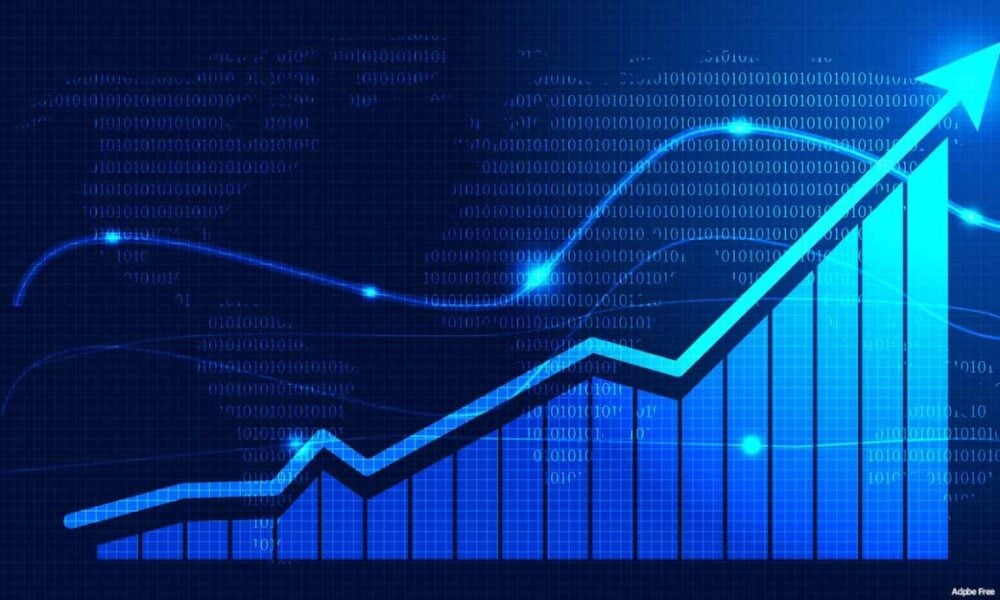Accounting & Finance
Everything to know before Investing in ETFs in Hong Kong

If you are thinking of investing in ETFs in Hong Kong, there are some things you need to know first. This business blog article will give you an overview of the ETF market and especially how it operates in HK. Plus, explain some of the critical factors you need to consider before investing, especially if you’re a business.
Exchange-traded funds are generally seen as the new kid on the block when it comes to investing, but they’re actually a pretty old concept. In fact, ETFs have been around for more than 20 years, and their popularity has grown from niche status to an investor favorite in just that time.
There are several reasons why businesses invest in ETFs, and you will likely see them grow even further over the coming years as more people discover their benefits. Read on to find out everything you need to know about Exchange-traded funds so that you can make an informed decision should you ever be asked if your business would benefit from investing in them.
What are ETFs, and what do they track?
An Exchange-Traded Fund (ETF) is a type of investment fund that tracks the performance of a particular asset or group of assets. ETFs are traded on stock exchanges, and their prices fluctuate daily in response to market conditions.
Exchange-traded funds are a popular way to invest in the stock market. ETFs are traded like stocks on an exchange and are often referred to as “exchange-traded notes” because they are not actually issued by a company. This means that ETFs have lower fee costs than mutual funds and can track the performance of large stock market segments. They can also be bought and sold at any point during the day, unlike closed-end funds, which can only be bought and sold at specific times.
Investors can choose from various types of ETFs, including:
- broad market ETFs that track different indexes,
- sector ETFs that focus on a specific area of the market
- currency-hedged ETFs that try to match the performance of one particular currency against another
- commodity-hedged ETFs try to match the performance of one particular commodity against another
Index ETFs Most Popular
Of the different ETFs, index ETFs are the most common in Hong Kong. These ETFs track the performance of a particular index, such as the Hang Seng Index or the S&P 500. Index ETFs expose investors to a basket of stocks without having to buy each one individually.
The Benefits of Investing in ETFs
There are many reasons why ETFs have become so popular in recent years. One of the main benefits is that they offer a cost-effective way to invest, and ETFs typically have lower fees than other investment funds, such as actively managed funds.
Another benefit of ETFs is that they are easy to trade. You can buy and sell ETFs just like any other stock, making them a convenient way to get exposure to the markets without making complex investment decisions.
Finally, ETFs offer diversification benefits. Investing in an ETF can gain exposure to a wide range of assets or markets, which can help reduce the risk of one stock performing badly and tanking one’s entire portfolio.
How to Buy and Sell ETFs in Hong Kong
If you want to invest in ETFs in Hong Kong, you will need to open a brokerage account with a local broker. Once you have opened an account, you can buy and sell ETFs like any other stock. When buying ETFs, you will need to pay a commission to your broker, and the amount of commission will vary depending on the broker and the size of your trade.
You will also need to pay a fee to your broker when selling ETFs. This fee is known as a “sell-side” or “exit” fee. This fee will again vary depending on the broker and your trade size. It is important to note that you may also be charged a “buy-side” or “entry” fee when buying ETFs, and this fee is typically less than the sell-side fee.
The Risks Associated with Investing in ETFs
Investing in ETFs involves risk, as with any investment. The risks will vary on the type of ETF you invest in. For example, index ETFs are generally less risky than actively managed funds. It is because they track a specific index, a collection of stocks that an investment committee has carefully selected.
Another factor affecting an ETF’s riskiness is its asset allocation. Some ETFs are focused on a particular asset class, such as stocks or bonds, while others are more diversified and hold different asset types. Generally speaking, the more diversified an ETF is, the lower the risk.
Of course, it is also important to remember that your investment’s value can go down and up. So you could get less than you originally invested.
What to Look for When Choosing an ETF Provider
Choosing a reputable provider is crucial if you’re considering investing in ETFs. There are many things to look for when choosing an ETF provider, including:
The size of the provider
A large provider will likely have more resources and experience than a smaller one.
The range of ETFs on offer
Make sure the provider offers the type of ETFs you’re interested in.
The fees charged
As mentioned earlier, ETFs typically have lower fees than other investment funds. But there can still be differences in the fees charged by different providers. So it’s essential to compare the costs before making your decision.
The platform used
Some brokers offer their proprietary ETF platforms, while others use third-party platforms. There are pros and cons to both approaches. Make sure you understand the platform before making your investment.
Customer service
ETFs can be complex products, so choosing a provider with good customer service is crucial. This way, you can get help and support if you need it.
Reasons Why Businesses Invest in ETFs
The following are the most common reasons why businesses are investing in ETFs.
Lower risk
The main reason why many businesses choose to invest in ETFs is that they’re considered a low-risk investment. This is because whereas an individual stock may rise or fall in value, the ETF’s performance will generally align with the sector it tracks. This means that if you invest in an ETF that tracks the S&P 500, your return will be largely unaffected by any single stock’s performance. –
Increased diversification
Investing in one or two stocks is generally considered high risk, whereas investing in several stocks through an ETF is far less risky due to the increased diversification. This is because the ETF’s performance will be dictated by many stocks rather than just a couple. This should lead to a more balanced risk/reward ratio, meaning lower volatility and a lower risk of a significant loss.
Summary
ETFs popularity has grown from niche status to something of an investor favorite. There are several reasons why businesses invest in ETFs, and you will likely see them grow even further over the coming years as more people discover their benefits.
Now that you know everything there is to know about Exchange-traded funds, you’ll be able to make an informed decision should you ever be asked if your business would benefit from investing in them. These are just some things to look for when choosing an ETF provider. The most important thing is to research and ensure you’re comfortable with the provider before investing any money.






